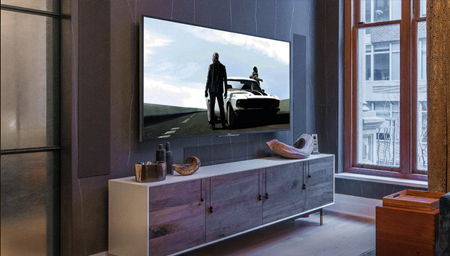Why HTA is the Real Deal
This first-hand account of the Home Technology Association’s rigorous certification process shows why its members are the most credible integrators
by John Sciacca
updated January 20, 2022
During the lengthy period where my career as a custom installer and my role as a technology editor have overlapped, I’ve written numerous articles similar to the pieces by Eric Thies on how to locate a qualified technology integrator. Sadly, none of them seem to have made much of a difference.
I agree with everything Eric said, but principally that most people take almost no time in vetting their integrator. And with the bar so low to becoming one—essentially just placing a magnet on the side of your truck and becoming Joe’s AV, with most states not requiring a license for low-voltage work—has led to a glut of terrible work and dissatisfied customers.
Over the years, our company, Custom Theater and Audio, has resurrected numerous projects for people who let the most random people into their homes to handle the technology install. Even though they comprehend that it’s too complicated for them to do, for whatever reason they think virtually anyone else is qualified to handle their technology needs. I’m not even kidding when I say some people say they hired “some guy” that was walking through the neighborhood putting leaflets on doors, had the flooring guy do it, used the electrician, or used someone the electrician knew. The tragedy is most of these people ended up spending good money to get a system that was never right for their needs or never worked right and then had to pay us to fix or replace it, and frequently ended up with something that couldn’t do what they had initially wanted.
This is exceptionally frustrating and, frankly, bad for the entire industry because all installation companies end up being lumped together in the minds of people who have been burned by bad work. And their experience passed on to others tarnishes the good along with the bad.
That’s one of the reasons why the Home Technology Association (HTA) intrigued me: Could their certification identify the best integration firms and help the cream rise to the top? This would not only help customers looking to hire a good company but (more selfishly) help my company stand out as one of the good guys.
HTA’s Director of Certification Josh Christian says their goal is to do for the custom installation industry what the Gemological Institute of America (GIA) has done for diamonds. The GIA allows anyone to walk into virtually any reputable jewelry store and know they’re purchasing a stone that has been independently verified for quality. The HTA doesn’t guarantee that selecting a certified professional will result in terrific performance or outcome. But in a sea of uncertainty, it offers a beacon to help guide you towards making a more informed selection from a pre-qualified group of top candidates.
My company recently went through the application process to became HTA Certified, and I can attest that it is rigorous, taking me several hours to research and gather all of the information required. Compared to the CEDIA (Custom Electronics Design & Installation Association) application—which has you fill out a single-page form asking for only the most basic information (company address, size, gross revenue) and your credit card information, and which essentially approves any company willing to pay the $500 annual registration—HTA mines far deeper into how a company actually operates. It’s clear in going through the process that the HTA’s primary concern is in signing the right companies.
Josh said the application process is so thorough because it helps the HTA to identify the best-in-class installation companies and provide a real look into their business operations and the kinds of jobs they do. And the sheer length and breadth of it scares away exactly the kinds of companies they want to avoid (as does the $400 application fee, which has the applying company putting some skin in the game).
Once certified, companies are listed on HTA’s website. (You can see our company page here.) This snapshot gives a consumer a pretty good idea if an installation company is going to be a good fit for their needs.
HTA understands its certification will only mean something if it actually means something, not only to the industry but to people looking to hire an integrator. They do this by a strict vetting process that only admits the best firms, and by raising awareness with architects, builders, designers, and consumers that choosing a qualified—ideally certified—integration firm matters. While a non-certified firm might do excellent work, going with an HTA-certified company will certainly start your project off on the right path.
Probably the most experienced writer on custom installation in the industry, John Sciacca is co-owner of Custom Theater & Audio in Murrells Inlet, South Carolina, & is known for his writing for such publications as Residential Systems and Sound & Vision. Follow him on Twitter at @SciaccaTweets and at johnsciacca.com.
Below are some of the key areas the HTA identifies about an integrator so you can decide if they’re the best fit for you
How long have they been in business?
Longevity is generally a good indicator the company will be around when you need service down the road. Bad companies usually don’t last. The average HTA certified company has been in existence for almost 17 years.
How many employees do they have?
Larger companies can often handle bigger projects—and certainly more projects—and potentially respond to service issues in a timelier manner.
What geographical areas do they service?
Working with a company that’s near your home often means faster response times and no trip charges.
What kinds of projects do they focus on?
If you’re building a $15-million 20,000-square-foot home, selecting a company that mainly does $50-thousand 3,500-square-foot homes might not be a good fit. Focusing on companies that specialize in the kind of project you’re considering will likely yield the best results.
What brands are they authorized to sell?
While there are many terrific manufacturers, certain brands define luxury home entertainment and are repeatedly used in the top installations. The manufacturer partners that a company chooses give you a look at the quality of gear the company can provide. This can also be important if you’re interested in a specific automation system like Control4, Crestron, or Savant, as dealers often specialize in one but not all.
How many projects have they done over the past three years in different price categories?
A good snapshot of how busy the company is and the focus of their projects.
What does a typical dedicated theater and media room install cost?
It’s a good idea to see if your budget aligns with the company’s typical installs. HTA’s site also has a 20-question budgeting tool that can be very useful for getting a rough idea of what your cost could be.
What industry awards and certifications do they have?
Bad companies generally don’t win awards or attain industry certifications.
What are their service policies?
No matter how good your system is, at some point it will need to be serviced, and knowing the company’s after-sale policy upfront is a good way to avoid any frustration later on.
© 2023 Cineluxe LLC















